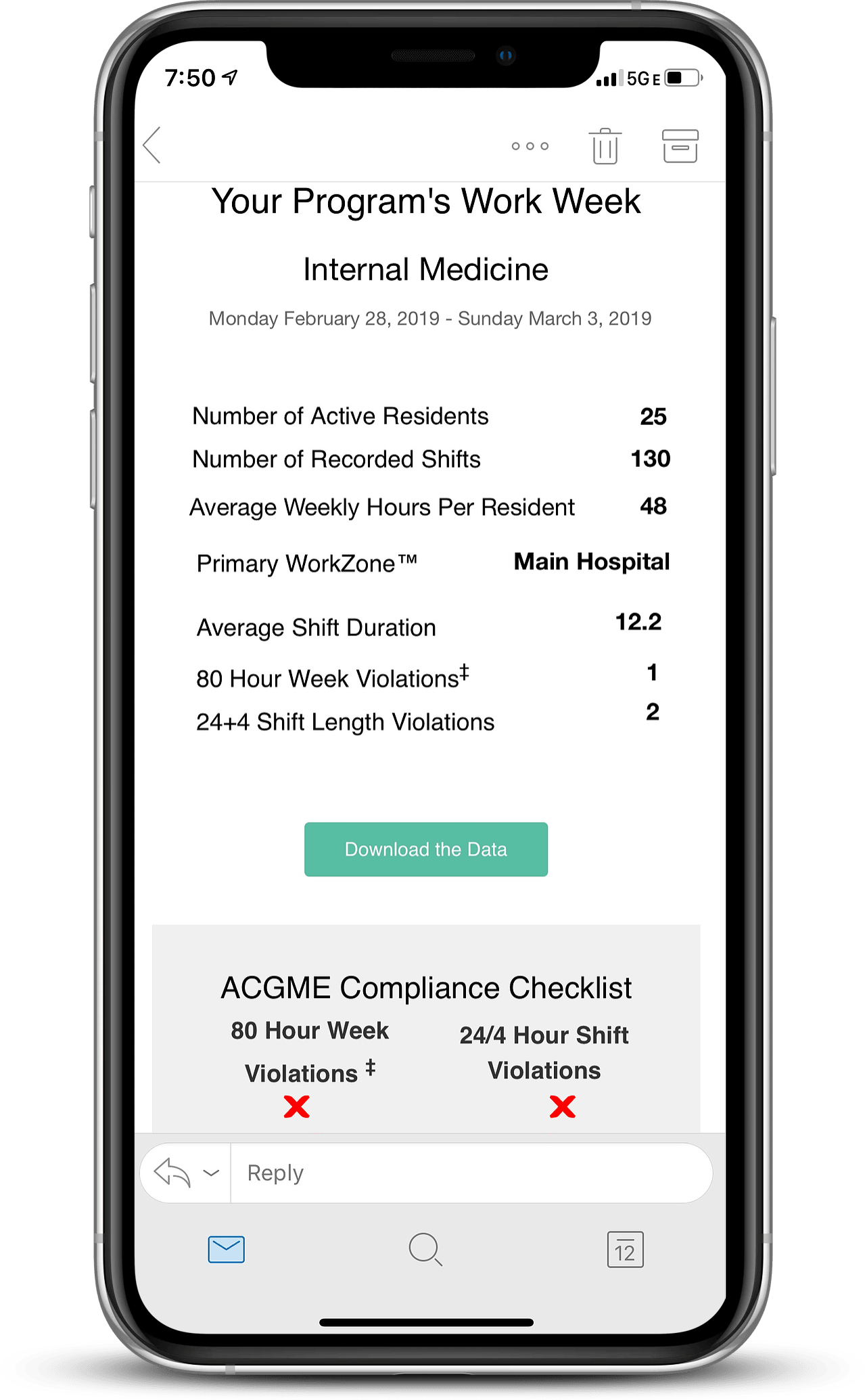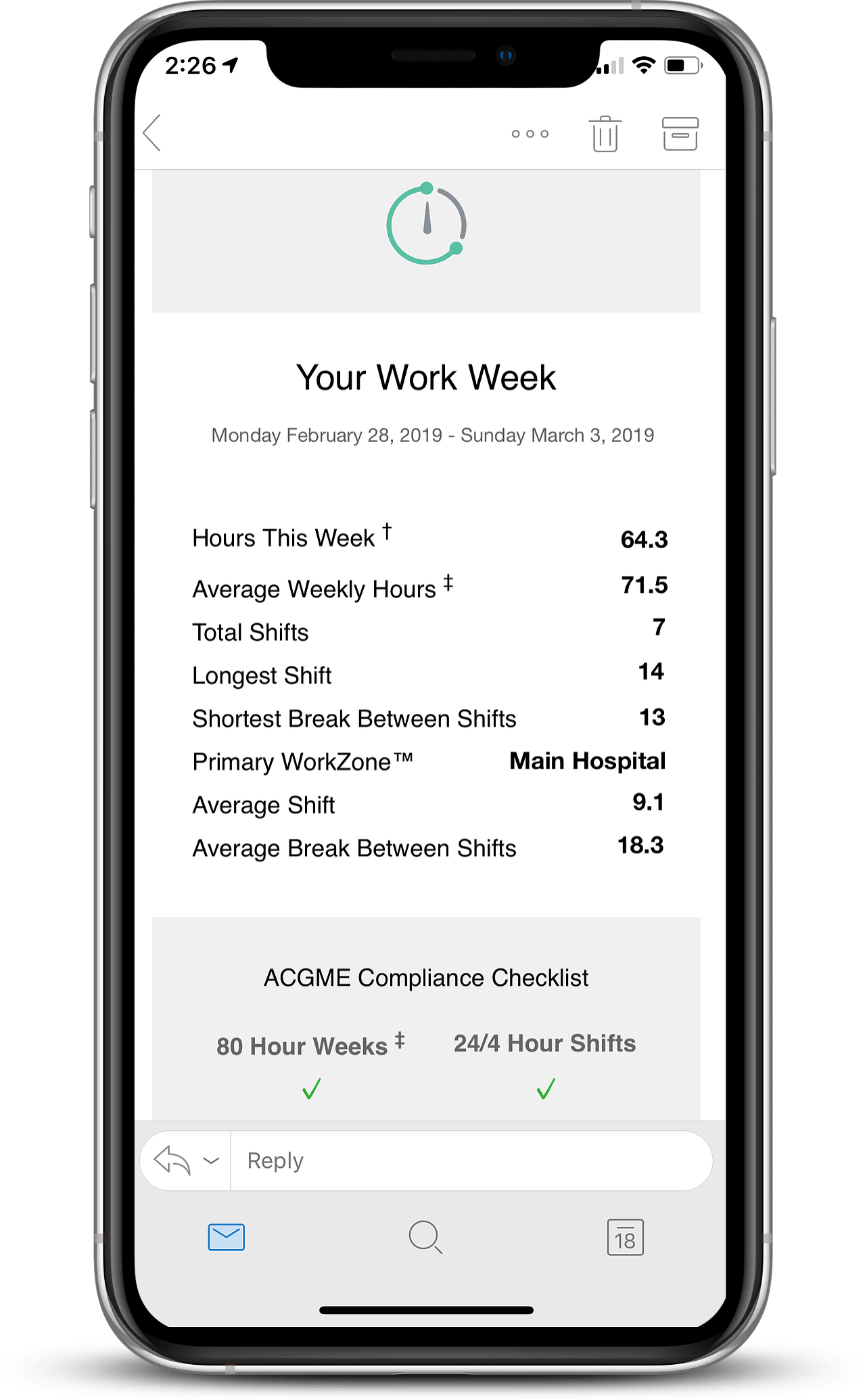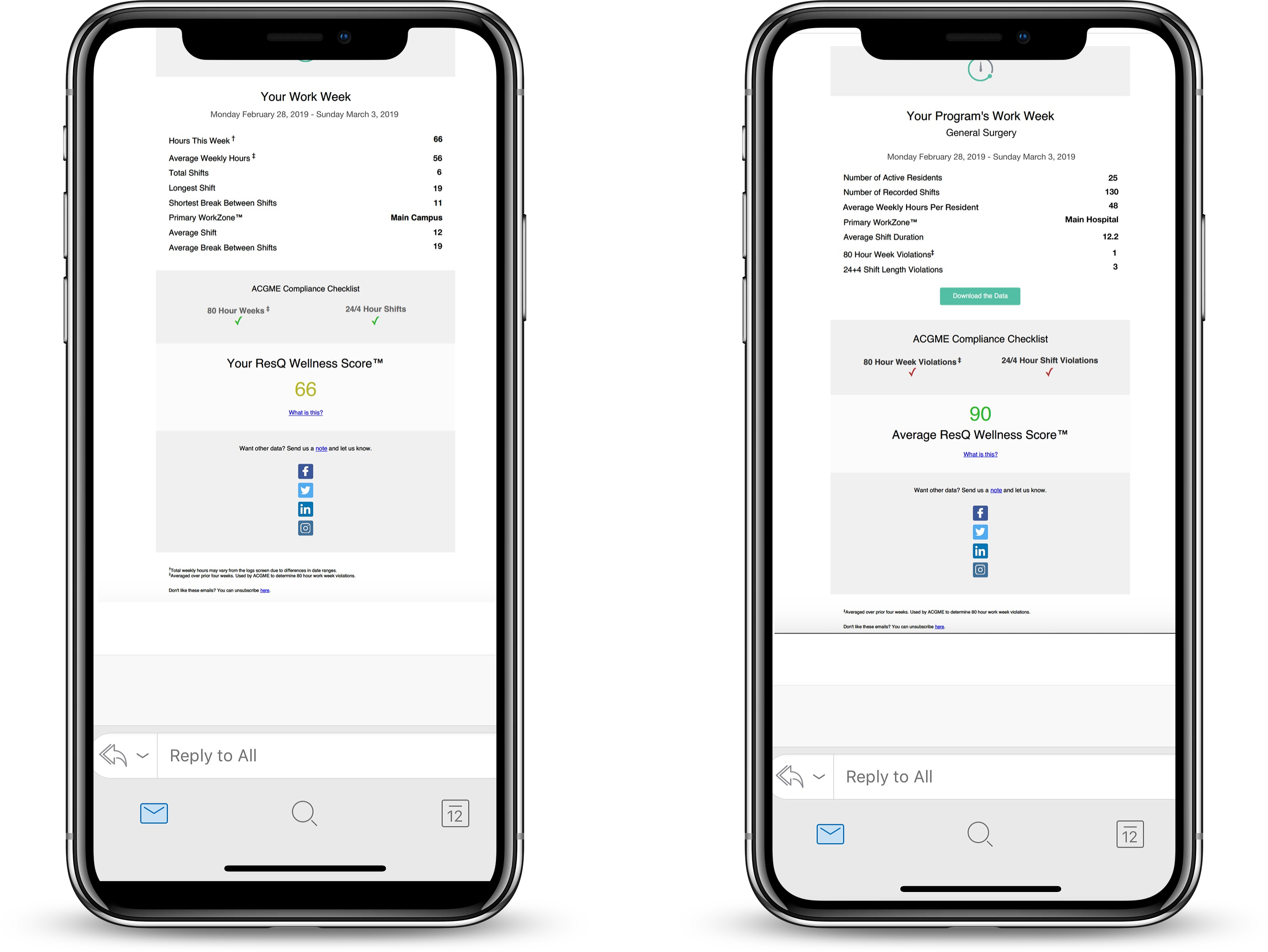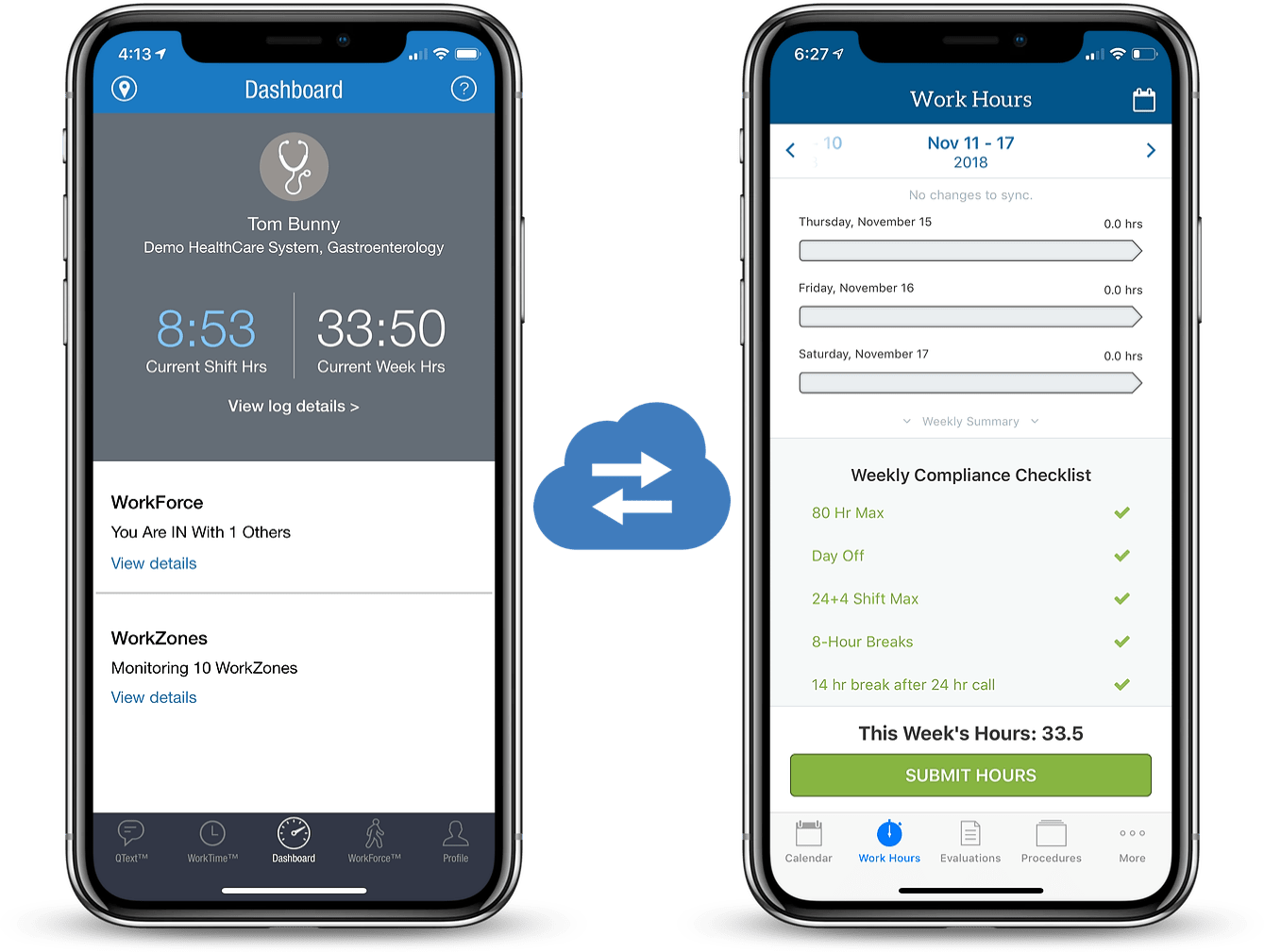
80 Hours Per Week, Averaged Over 4 Weeks
As Graduate Medical Education continues to evolve, work hours, and physician well-being are at the forefront of the conversation. The ACGME recently reaffirmed its strict interpretation of the 80-hour rule and program compliance. This effort is to maintain a clinical learning environment that fosters the best outcomes for patients, and the well-being of residents, fellows, and faculty members.
The interpretation of the “80-hour rule” seems to have come into question lately. It might even be best described as a misinterpretation of the rule. The reality is, some perceive the “80-hour rule” as a rule that means working more than 80 hours in one week is a violation. In actuality, the 80-hour rule means the violation would occur only if, over a four week span, the average amount of hours worked is greater than 80.
Regardless, everyone is facing the same challenge and asking the same question. How many hours, on average, are residents working per week?
With ResQ, the number of work hours, averaged over 4 weeks, is calculated and delivered to residents and administrators weekly.
Residents receive a summary of their weekly hours, a compliance checklist and their average weekly hours. The average weekly hours are calculated over the prior four weeks, which the ACGME uses to determine 80-hour work week violations. Program administrators receive a similar weekly report that displays the average weekly hours per resident as well as any 80-hour week violations that occur. Should an 80-hour rule violation occur, the data is available for administrators to delve into the violation in more detail.
What Administrators See

What Residents See

The growing ResQ Analytics platform delivers valuable information that allows GME offices to gain a better understanding of residency programs and resident well-being. Be confident with the work hour information delivered and use ResQ to visualize work hour information based on PGY, Program, training site location, and Wellness Score™.
Record with ResQ, Submit with MedHub
Here’s how it works. GME administrators provide ResQ with the names and locations where residents train, our team creates those WorkZones. Location points are plotted on a map which become the virtual boundary. Once the virtual boundary is saved to our server, the WorkZone is created.
Once a resident signs in to the app, their hours automatically record upon entry and exit. And once they exit a WorkZones, their hours automatically transfer to MedHub.
WorkZones also offers a whole new layer of data that has never been available
can be created around any location where residents train which
What Residents Are Saying
Residents now spend just 2 minutes every 2 weeks documenting work hours. Submission rates immediately increase because the hours automatically appear in MedHub. With ResQ, the time spent reminding residents to document and submit their hours is non-existent, and the compliance checklist in MedHub is always viewable in real-time.
“I love using this application. It takes 95% of the work of logging duty hours off of me. It makes it incredibly easy to log in at the end of the week, make a few adjustments or corrections, and then submit!”
“I really like the app…the hour recognition is spot on and I don’t have to change anything. Just hit submit at the end of the week.”
“I really loved using the app. It made logging hours so convenient on Saturday.”
“I have been using the ResQ app almost all year and love it. I think many more of my colleagues would be using it too had they known about it and the benefits.”
“The ResQ app significantly simplifies my administrative burden. Without the app, I would have for sure forgotten to log most of my work hours.”
“I have been using the ResQ app since the beginning and I think it’s an extremely useful app. We are mandated to keep track of our duty hours and that often gets hard when you’re busy working/too tired to remember. It makes my life a little easier especially because it tracks your time at ALL of the main sites we work at as residents.
“Extremely convenient and doesn’t seem to impact battery life. Highly recommend the app and everyone should use it in my opinion.”
“I personally am a huge fan of the app. It makes logging hours a one-click task, and I like not having to think about it. I really appreciate having the app.”
The ResQ app revolutionizes the way work hours are documented. And the integration with MedHub makes it a solution unique to the industry. Learn more about the app and the MedHub Integration at www.ResQmedical.com/medhub.
To get started, register now or reach out to your MedHub CSM for more information.
What Residents Are Saying About ResQ
Residents now spend just 2 minutes every 2 weeks documenting work hours. Submission rates immediately increase because the hours automatically appear in MedHub. With ResQ, the time spent reminding residents to document and submit their hours is non-existent, and the compliance checklist in MedHub is always viewable in real-time.
“I love using this application. It takes 95% of the work of logging duty hours off of me. It makes it incredibly easy to log in at the end of the week, make a few adjustments or corrections, and then submit!”
“I really like the app…the hour recognition is spot on and I don’t have to change anything. Just hit submit at the end of the week.”
“I really loved using the app. It made logging hours so convenient on Saturday.”
“I have been using the ResQ app almost all year and love it. I think many more of my colleagues would be using it too had they known about it and the benefits.”
“The ResQ app significantly simplifies my administrative burden. Without the app, I would have for sure forgotten to log most of my work hours.”
“I have been using the ResQ app since the beginning and I think it’s an extremely useful app. We are mandated to keep track of our duty hours and that often gets hard when you’re busy working/too tired to remember. It makes my life a little easier especially because it tracks your time at ALL of the main sites we work at as residents.
“Extremely convenient and doesn’t seem to impact battery life. Highly recommend the app and everyone should use it in my opinion.”
“I personally am a huge fan of the app. It makes logging hours a one-click task, and I like not having to think about it. I really appreciate having the app.”
The ResQ app revolutionizes the way work hours are documented. And the integration with MedHub makes it a solution unique to the industry. Learn more about the app and the MedHub Integration at www.ResQmedical.com/medhub.
To get started, register now or reach out to your MedHub CSM for more information.


